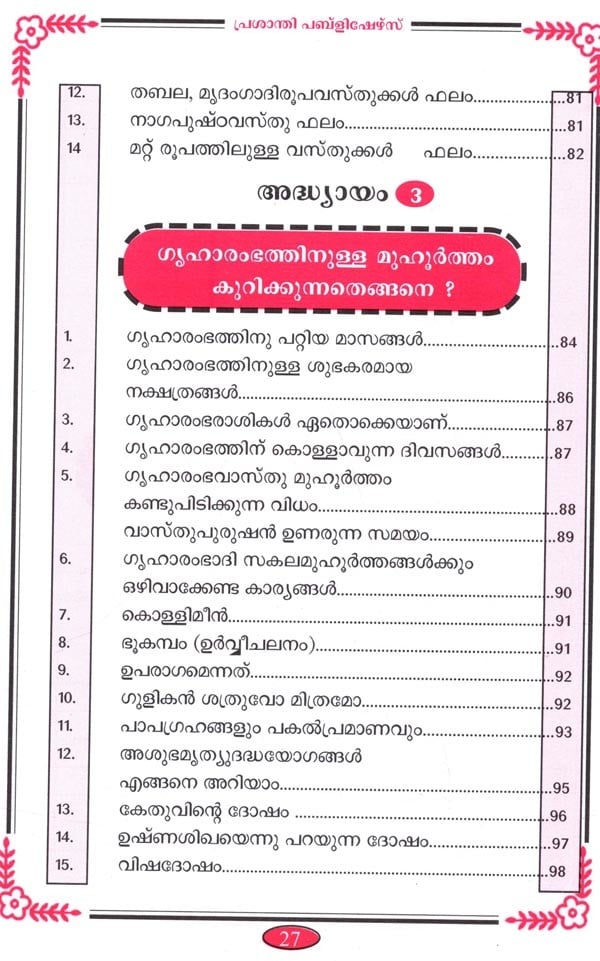
Property rights: Inheritance is not a birthright.
Muslim vasthu shstra malayalam document full#
Sharers include the husband, wife, daughter, daughter of a son (or a son’s son or a son’s son’s son), father, paternal grandfather, mother, grandmother on the side of the males, full sister, consanguine sister, uterine sister and uterine brother. Types of heirs: There are two types of heirs – heirs or sharers and reliquaries (beneficiaries of residual share of property). Both are treated equally and are open for inheritance by the legal heirs. Nature of property: The Muslim law does not distinguish between self-acquired property and ancestral property. Volume of inheritance: The exact inheritance is determined only after the deceased’s debts, legal expenditure like will, etc.

Treatment of property: There is no distinction between movable and immovable property or corporeal and incorporeal property. All of the deceased’s belongings are meant for inheritance. The Muslim law does not acknowledge the ‘right by birth’ that exists in the Hindu law. No person can inherit the property belonging to a person who is still alive. Inheritance only after death: Among Muslims, only after death of a person, the inheritance factor emerges. See also: Role of Karta in a Hindu Undivided family Muslim inheritance law For this, we also need to understand some of the key characteristics of inheritance and succession rules among Muslims. In this article, we are going to focus on the Muslim woman’s right to property. However, if the deceased had made a will, it shall follow the Indian Succession Act, 1925, in the case of immovable property in West Bengal, Mumbai or Madras jurisdiction. In the absence of a will, the law of succession for Muslims shall be as per the Shariat. The law related to inheritance among Muslims is derived from the religious scripture, the Quran (Sunna), the consensus of the learned men (Ijma) and the deductions from principles and what is just and right (Qiya). Indian Muslims are governed by their personal law or the Muslim Personal Law (Shariat) Application Act, 1937. Muslim woman’s right to property for child in her womb.The role of a will in a Muslim’s inheritance rules.


Muslim woman’s property rights after divorce.


 0 kommentar(er)
0 kommentar(er)
